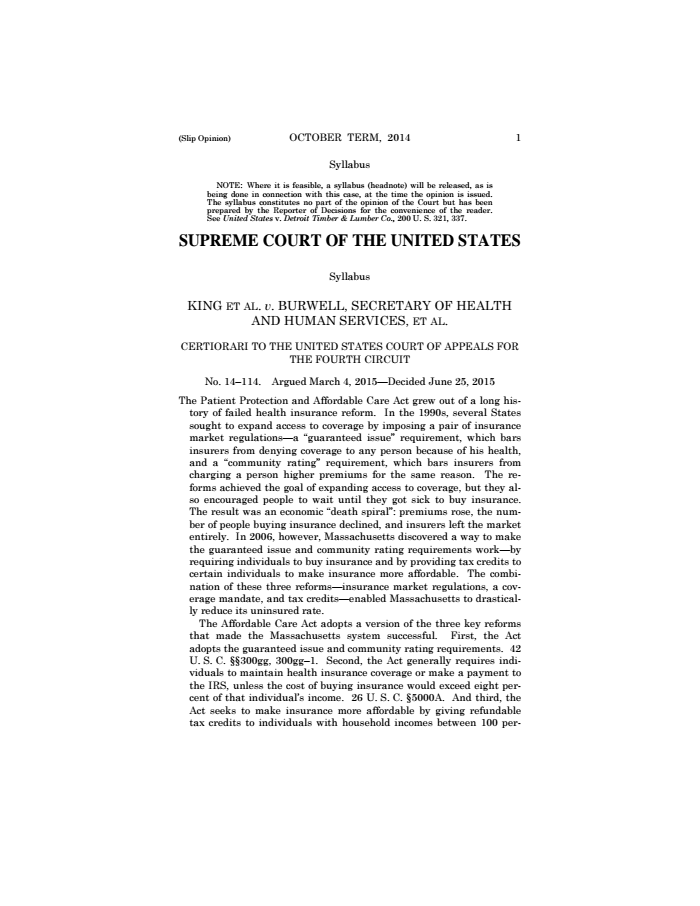
WASHINGTON — The Supreme Court ruled Thursday that insurance subsidies are available under Obamacare for people in states that did not set up their own health insurance exchanges.
The argument before the justices was that the language of Obamacare prevents the health care subsidies that are available under the act from being given to those people purchasing their health insurance through the federal exchange. The text of the law, the argument went, stated that the subsidies are only allowed for those who bought their insurance in "an Exchange established by the State."
On Thursday, the Supreme Court disagreed. "Had Congress meant to limit tax credits to State Exchanges, it likely would have done so in the definition of 'applicable taxpayer' or in some other prominent manner," Chief Justice John Roberts wrote for the court. "It would not have used such a winding path of connect-the-dots provisions about the amount of the credit."
Without subsidies available to those getting their health insurance through the federal exchange, it would, effectively, kill Obamacare — sending it into a "death spiral," as was discussed at oral arguments in March, because a significant number of people would no longer be able to afford health insurance.
The court, however, upheld the use of subsidies for those in the federal exchange in a 6–3 decision authored by the chief justice in which he was joined by Justice Anthony Kennedy, as well as the court's four more liberal justices: Ruth Bader Ginsburg, Stephen Breyer, Sonia Sotomayor, and Elena Kagan.
Notably, the court did not apply its usual rule — as a lower court had done — of examining whether the agency's interpretation of the law was a permitted reading of the statute when language in a law is ambiguous. Roberts, instead, wrote that this was one of the "extraordinary cases" where the court believed Congress did not intend to delegate such interpretation of the law to an executive agency.
"The tax credits are among the Act's key reforms, involving billions of dollars in spending each year and affecting the price of health insurance for millions of people," Roberts wrote for the court. Calling the subsidies question "central to this statutory scheme," he wrote that "had Congress wished to assign that question to an agency, it surely would have done so expressly."
The court, instead, held — if the language is ambiguous — that it would have to determine itself what Congress meant "with a view to their place in the overall statutory scheme."
After finding that the language was ambiguous, however, Roberts concluded, "The whole point of that provision is to create a federal fallback in case a State chooses not to establish its own Exchange" and that "the structure of Section 36B [the "established by the state" provision] itself suggests that tax credits are not limited to State Exchanges."
Since the justices agreed in November of last year to take up the case, all eyes have been on the chief justice — as court watchers, and the administration, wondered whether Roberts, again, would side with the court's more liberal members in upholding the law as he had done in 2012.
At the March arguments, however, Roberts didn't give much of a hint as to where he stood — but Kennedy had expressed concerns about whether a ruling ending the subsidies for those covered through the federal exchange would create unconstitutional coercion from the federal government on the states.
Both of them ended up joining the more liberal justices, leaving justices Antonin Scalia, Clarence Thomas, and Samuel Alito in dissent.
Scalia authored a fiery dissent, derisively saying that the pair of decisions upholding the constitutionality and implementation of the law should lead people to call the law "SCOTUScare."


